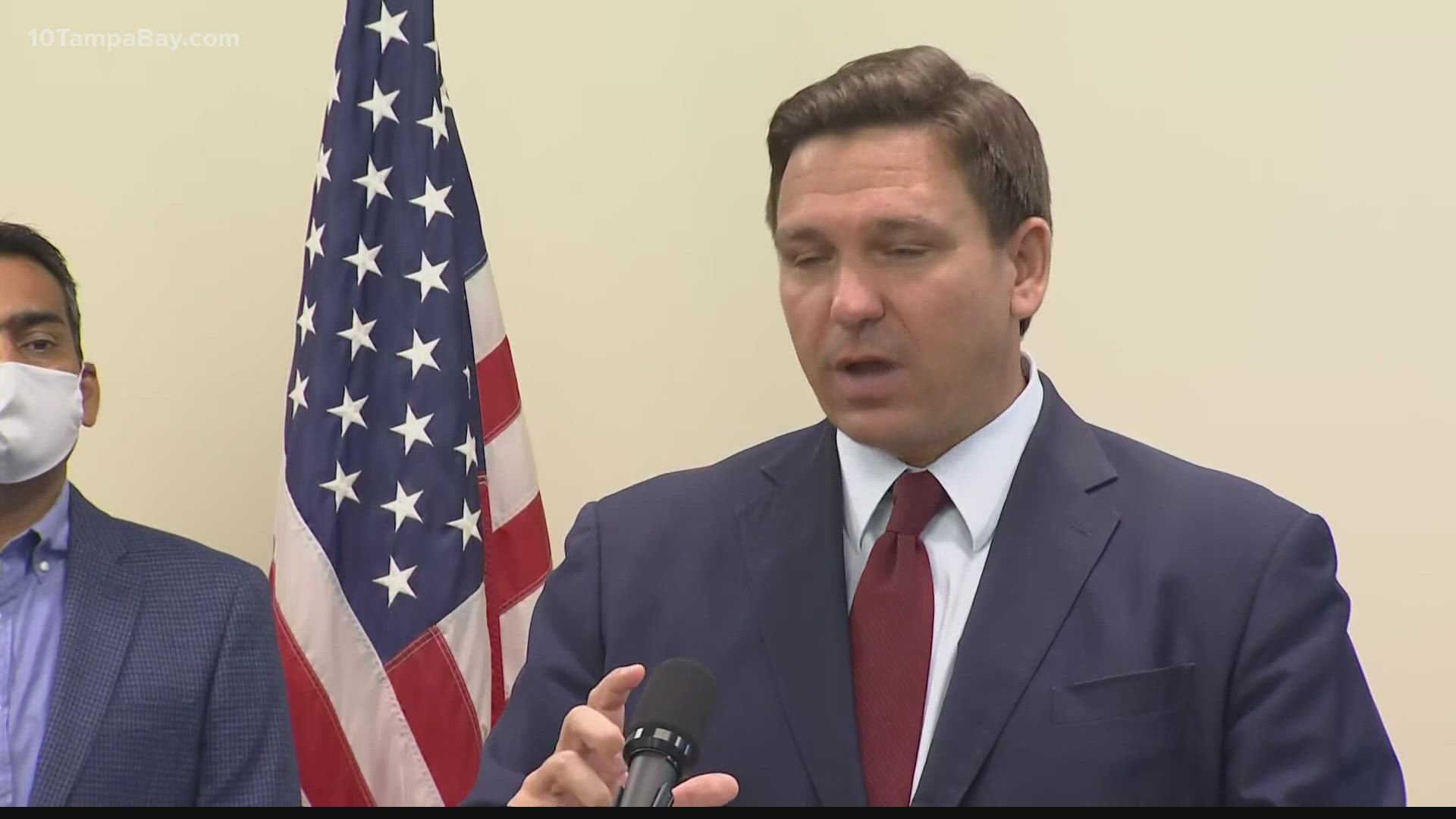TAMPA, Fla — If you’re keeping score, it’s been a challenging past couple of weeks for Gov. Ron DeSantis and his political agenda.
On Thursday, a judge put the brakes on the governor’s cornerstone legislation, the so-called anti-riot law or HB-1. It was just the latest in a series of recent court challenges, each overturning a law or executive order that DeSantis himself had made a priority.
“The courts are ruling for what’s right. The courts are listening to us,” said Yvette Lewis, President of the Hillsborough NAACP Chapter. The NAACP was one of the legal parties fighting HB-1.
It was only a day earlier that another judge had taken the teeth out of DeSantis’ ban on in-school mask mandates: a decision overturned by the 11th Circuit Court of Appeals on Friday.
Before that, a federal judge blocked the governor's highly prioritized social media — or "Big Tech" — law.
And recently, following a legal back and forth, a federal judge issued an injunction siding with cruise lines who’ve been snubbing DeSantis’ vaccine passport policy.
The constitutionality of all these issues was questioned before any of them were signed into law. But political experts say DeSantis is playing to his conservative base and likely scoring political points regardless of the legal outcome.
“And he believes these are the issues that can turn the voter base out,” said 10Tampa Bay Political Expert Lars Hafner. “But it’s starting to have some implications on him that he wasn’t thinking about.”
In each case, the governor has vowed to eventually prevail, and DeSantis has seen some success at having lower court rulings reversed.
For example, he was able to quickly get the stay on those in-school mask mandates re-instated by what he considers a friendlier 11th Circuit Court of Appeals. DeSantis places more confidence in the appellate court where, during his administration, former President Donald Trump appointed five of those 12 judges.
“He’s right. I mean it’s played out,” Hafner said. “You can see some of the previous rulings and the ruling that occurred today would back that theory and idea up.”
And the legal challenges continue.
A federal judge has also scheduled trials in January for lawsuits testing Florida’s new and arguably more restrictive elections law.

